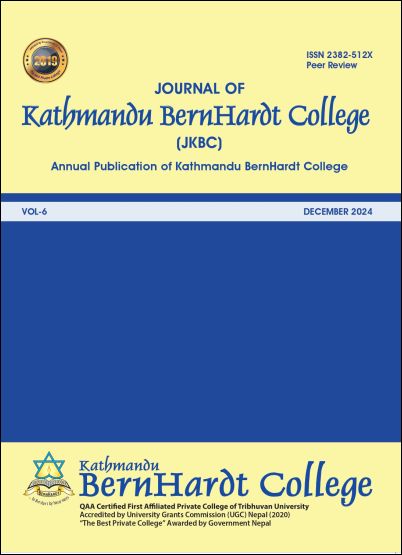Assessment of Dividend Payout Ratios in Nepalese Commercial Banks: A Buddhism Perspective
DOI:
https://doi.org/10.3126/jkbc.v6i1.72955Keywords:
Buddhism, Shareholders, Banks, Investment, Dividend payout ratioAbstract
Buddhism ethics in investment and profit distribution emphasize compassion, non-harm, ethical conduct, generosity, and avoidance of greed, guiding Nepalese banks toward balanced, sustainable, and ethical operations. The dividend payout ratio shows how much of a company's earnings after tax are distributed to shareholders, indicating profitability and boosting shareholder trust. The board of directors sets the dividend policy, including payment frequency and amount, based on company performance. The study titled, assessment of dividend payout ratios in Nepalese commercial banks from a Buddhist perspective analyzes three prominent banks (NBL, RBB, and ADB) from 2012/13 to 2021/22. These banks were chosen for their strong fundamentals and popularity among investors. The study used secondary data from annual reports and employed statistical and financial tools like descriptive statistics, correlation, and regression analysis to evaluate their performance and investment appeal. From a Buddhism perspective, the investment and dividend mechanisms should align with ethical considerations. The analysis shows that banks with higher growth and earnings per share tend to have higher dividend payouts, but the overall complexity and variability suggest that mindful and ethical financial decisions are crucial.




